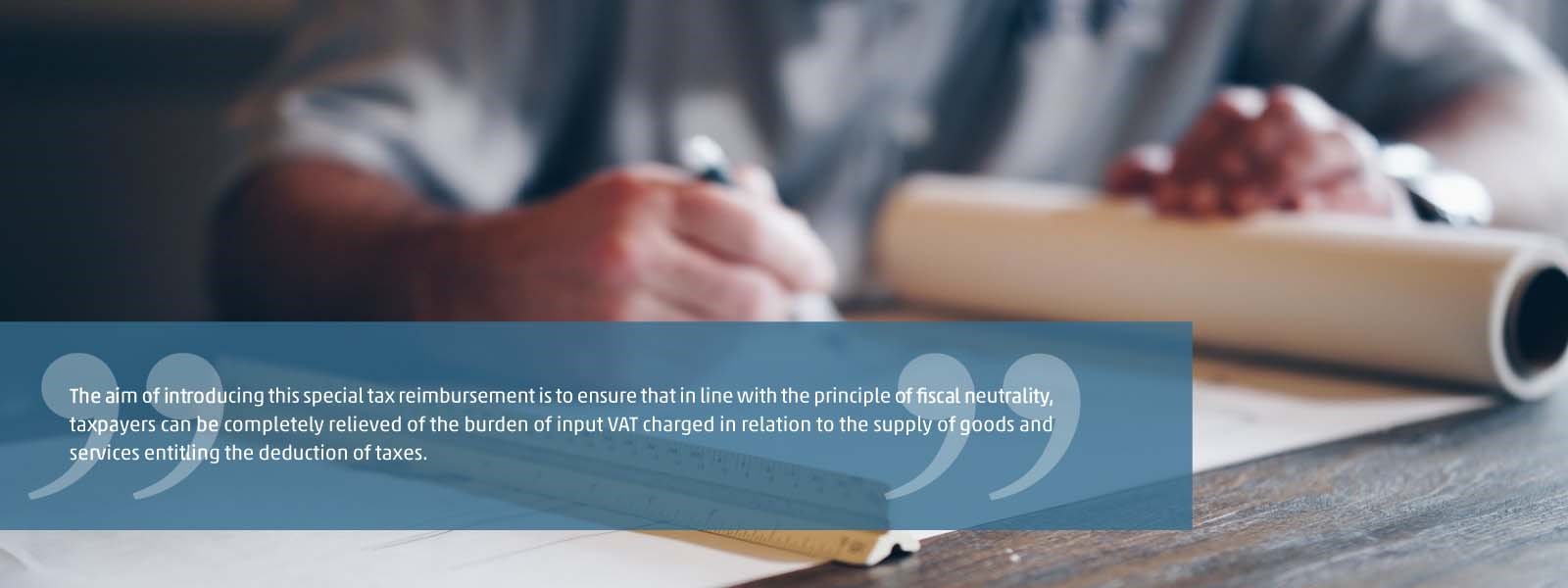From 1 January 2020 a special rule on VAT reimbursement will take effect as part of the Hungarian VAT Act. We already wrote about this in our article on the summer amendments to tax laws. Let us now take a closer look at what is behind the special tax reimbursement rule.
Essence and purpose of new rule
According to the special tax reimbursement rule, taxpayers will have the opportunity to claim reimbursement of input VAT – that they cannot otherwise recover – no later than six months prior to the expiry of the limitation period.
Taxpayers lose this right after the deadline expires, and the request must be filed in writing. In the request, taxpayers will have to provide evidence that they cannot reclaim the input VAT in any other way due to reasons beyond their control. The Hungarian tax authority will approve the reimbursement if the VAT has been paid into the budget.
The aim of introducing this special tax reimbursement is to ensure that in line with the principle of fiscal neutrality, taxpayers can be completely relieved of the burden of input VAT charged in relation to the supply of goods and services entitling the deduction of taxes. Tax deduction rules are intended to ensure this principle is enforced. Yet in some cases, certain companies may still be unable to recover the VAT amount despite doing everything in their power.
When can the special tax reimbursement rule be applied?
The rule on special tax reimbursement may be applied, for instance, if the supplier of a company incorrectly charges VAT, instead of issuing a reverse VAT invoice, and the VAT is paid by the company to the supplier. The issuer of the invoice pays the VAT to the Hungarian tax authority, and the company receiving the invoice deducts this amount. At a subsequent tax inspection, the tax authority finds that no VAT should have been charged for the given service in the first place, so the company was not entitled to deduct said VAT. By default, the receiver of the invoice may claim the reimbursement of the unlawfully charged VAT from the supplier in such cases. If, however, the supplier has since been terminated or become insolvent, reclaiming the charged VAT becomes impossible.
Decision of the Court of Justice of the European Union
The new rule presented above is based on a decision of the Court of Justice of the European Union in a case involving a Hungarian party.
The Hungarian tax authority conducted an inspection at PORR Építési Kft. (PORR Building Ltd.), during which it found a VAT shortfall. The company accepted several invoices for construction activities, on which the service providers charged VAT. PORR Kft. paid the invoices to the service providers and deducted the amounts of VAT charged thereon, before reclaiming the VAT. However, the tax authority found that the business transactions on the invoices were related to construction activities, so the invoices should have been issued with a reverse charge. Consequently, a tax shortfall was established and a tax penalty with late payment interest was levied on the taxpayer.
PORR Kft. should have reclaimed the VAT unlawfully charged to it by the issuer of the invoices, who could have reclaimed the unduly paid VAT from the tax authority. However, in the meantime the suppliers had become insolvent and were under bankruptcy proceedings, so the company could not recover the unlawfully charged VAT. In PORR Kft.’s opinion, if we accept that the tax authority can deny the right of the invoice receiver to deduct the VAT without ordering the invoice issuer to apply a reverse charge procedure and correct the invoices at the same time, the receiver would have to pay the same tax twice.
The solution: special tax reimbursement
According to the Hungarian court involved in the case, before denying the company’s right to deduct taxes related to VAT paid erroneously to the invoice issuers, the tax authority must examine whether the issuers are able to correct the relevant invoices and repay the VAT included therein to the taxpayer.
Based on the decision by the Court of Justice of the European Union, the principle of fiscal neutrality and that of effectiveness is not violated if the tax authority denies reimbursement of unduly paid VAT without reviewing in advance whether the issuer of the invoices is able to repay the unlawfully charged VAT to the user of the services.
However, if the reimbursement of the unduly invoiced value added tax by the supplier to the recipient of the services becomes impossible or excessively difficult, in particular if the supplier is insolvent, those principles dictate that the recipient of the services may address their application for reimbursement to the tax authority directly.
When providing preliminary consulting on value added tax, WTS Klient Hungary helps its clients determine VAT burdens as part of even very complex transactions and situations. Please do not hesitate to contact us if you have any questions on the application of the special tax reimbursement rule, or on any other issues related to changes in VAT.











